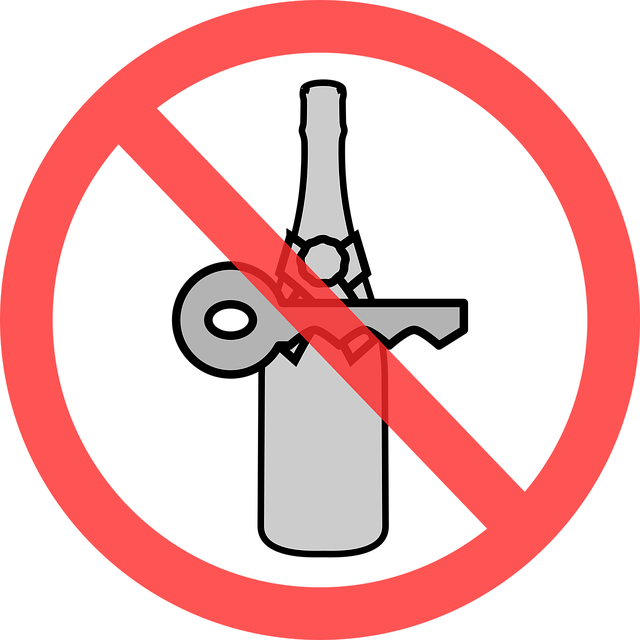Rural areas face unique challenges in preventing DUI due to lower police presence, community stigma, and economic stress. Veterans, specifically, struggle with reintegration and poor judgment due to military-to-civilian transitions and invisible injuries like PTSD. Tailored interventions, including education campaigns, accessible transportation, and legal strategies focusing on alternative sentencing and specialized veteran programs, are crucial for effective rural DUI prevention. Effective communication, empathy, and trauma-focused approaches help guide veterans through the legal process, ensuring positive outcomes while addressing underlying social issues. Specialized court programs and flexible alternatives reduce recidivism and enhance veteran reintegration into these communities.
In rural communities, DUI prevention faces unique challenges. This article delves into tailored strategies for veterans facing DUI charges, a demographic often overlooked in traditional legal defenses. We explore specific barriers veterans encounter and how their unique experiences shape legal cases. By understanding the complexities of their situation, we tailor effective defense plans. Additionally, we discuss building trust through compassionate communication, alternative sentencing, and long-term support for successful recovery and reintegration, focusing on rural community DUI prevention efforts.
- Understanding Rural Community DUI Prevention Challenges
- The Unique Barriers Veterans Face in DUI Cases
- Tailoring Legal Defense Strategies for Veteran Clients
- Effective Communication and Building Trust with Veterans
- Exploring Alternative Sentencing Options for Veterans
- Supporting Long-Term Recovery and Reintegration for Veterans
Understanding Rural Community DUI Prevention Challenges

In rural communities, DUI prevention presents unique challenges distinct from urban areas. Lower population densities and limited access to public transportation can lead to fewer police patrols, making it easier for individuals to drive under the influence without detection. Additionally, lack of awareness and education about the dangers of DUI among rural residents may contribute to higher rates of alcohol-impaired driving.
Rural settings often have smaller, tighter-knit communities where reputations are highly valued. This can create a stigma against reporting drunk driving incidents, as it might involve exposing personal knowledge or compromising relationships. Moreover, economic hardships prevalent in rural areas may lead to increased stress and reliance on alcohol, exacerbating the DUI problem. Tailored interventions that consider these challenges, such as targeted education campaigns, community involvement, and accessible alternative transportation options, are crucial steps towards addressing Rural Community DUI Prevention effectively.
The Unique Barriers Veterans Face in DUI Cases

Many veterans face unique challenges when navigating the complexities of a DUI (Driving Under the Influence) case, often stemming from their military experiences and reintegration into civilian life. One significant barrier is the transition from structured military environments to the more lenient attitudes towards alcohol consumption in rural communities. This shift can lead to poor judgment regarding alcohol intake, especially if veterans struggle with readjusting to daily routines or dealing with invisible injuries like PTSD (Post-Traumatic Stress Disorder).
Rural Community DUI Prevention programs often lack tailored support for veterans, making it crucial for legal professionals to understand these unique circumstances. Veterans may have experienced heightened stress levels and been exposed to traumatic events, which can impact their decision-making abilities and behaviors, including their choice of alcohol consumption and subsequent driving decisions. Addressing these underlying issues is essential in providing effective DUI defense tailored to the specific needs of veterans.
Tailoring Legal Defense Strategies for Veteran Clients

In representing veteran clients facing DUI charges, it’s crucial to understand and tailor legal strategies that address their unique circumstances. Many veterans return home to rural communities where access to resources like transportation or affordable counseling can be limited, factors that contribute to higher rates of substance abuse and DUI incidents. A well-crafted defense must consider these challenges and offer solutions.
For instance, an effective strategy could involve advocating for alternative sentencing options that take into account the veteran’s service history and mental health needs, such as community service or participation in rural DUI prevention programs specifically designed to support veterans reintegrating into their communities. Tailoring legal assistance to meet these specific needs can lead to more favorable outcomes and contribute to reducing recidivism rates among veteran DUI offenders.
Effective Communication and Building Trust with Veterans

Effective communication is paramount in building a strong defense for veterans facing DUI charges, especially within rural community settings where unique challenges may exist. Many veterans have experienced trauma and may struggle with mental health issues, substance abuse, or social barriers. A skilled attorney must approach these individuals with empathy, understanding their past experiences can help de-escalate tense situations and foster trust. By using clear, straightforward language and actively listening to the veteran’s concerns, legal professionals can establish a supportive environment, crucial for open communication.
In rural areas, where access to resources might be limited, building trust is even more critical. Veterans may feel isolated or face stigma when dealing with DUI charges, adding to their stress. A defense lawyer who prioritizes effective communication can guide them through the legal process, ensuring they understand their rights and options. This tailored approach, considering the veteran’s unique circumstances, contributes to a more successful outcome in rural community DUI prevention efforts.
Exploring Alternative Sentencing Options for Veterans

In many rural communities, where the rate of DUI offenses can be particularly high, veterans face unique challenges when navigating the legal system. These challenges often stem from the complex interplay between post-traumatic stress disorder (PTSD), substance abuse, and the transition from military to civilian life. Exploring alternative sentencing options tailored to veterans’ specific needs is a crucial step in addressing this issue. Programs focused on rural community DUI prevention can play a pivotal role by offering flexible and supportive solutions that take into account the unique circumstances of veterans.
One such option involves specialized court programs designed to help veterans overcome their addictions while providing them with resources for reintegration into society. These programs may include deferred prosecution agreements, diversionary programs, or participation in treatment facilities with a focus on military-related trauma. By implementing these alternative sentencing measures, the legal system can foster a more supportive environment, reduce recidivism rates, and contribute to the overall well-being of veterans in rural communities, effectively addressing both DUI offenses and the underlying social issues.
Supporting Long-Term Recovery and Reintegration for Veterans

Veterans returning from service often face unique challenges, and one of the critical aspects of their reintegration is addressing any substance abuse issues, especially in rural communities. DUI (Driving Under the Influence) cases involving veterans require a nuanced approach that considers both their military experience and the support systems available in these often-remote areas.
A tailored defense strategy can play a significant role in helping veterans overcome this challenge. This includes connecting them with specialized treatment programs that understand the complexities of military service and post-traumatic stress disorder (PTSD). By offering long-term recovery support, legal professionals can ensure that veterans not only avoid severe penalties but also receive the help they need to reintegrate into their rural communities successfully, fostering a safer environment for everyone through effective Rural Community DUI Prevention initiatives.
In addressing Rural Community DUI Prevention challenges, particularly for veterans facing legal repercussions, a nuanced approach is imperative. By understanding the unique barriers veterans encounter in DUI cases and tailoring defense strategies accordingly, we can ensure they receive the support needed to navigate the legal system effectively. Effective communication, building trust, exploring alternative sentencing options, and fostering long-term recovery and reintegration are vital components of this tailored assistance. Through these efforts, we can create a more supportive environment for veterans facing DUI charges, helping them turn their lives around while contributing positively to rural community safety.






